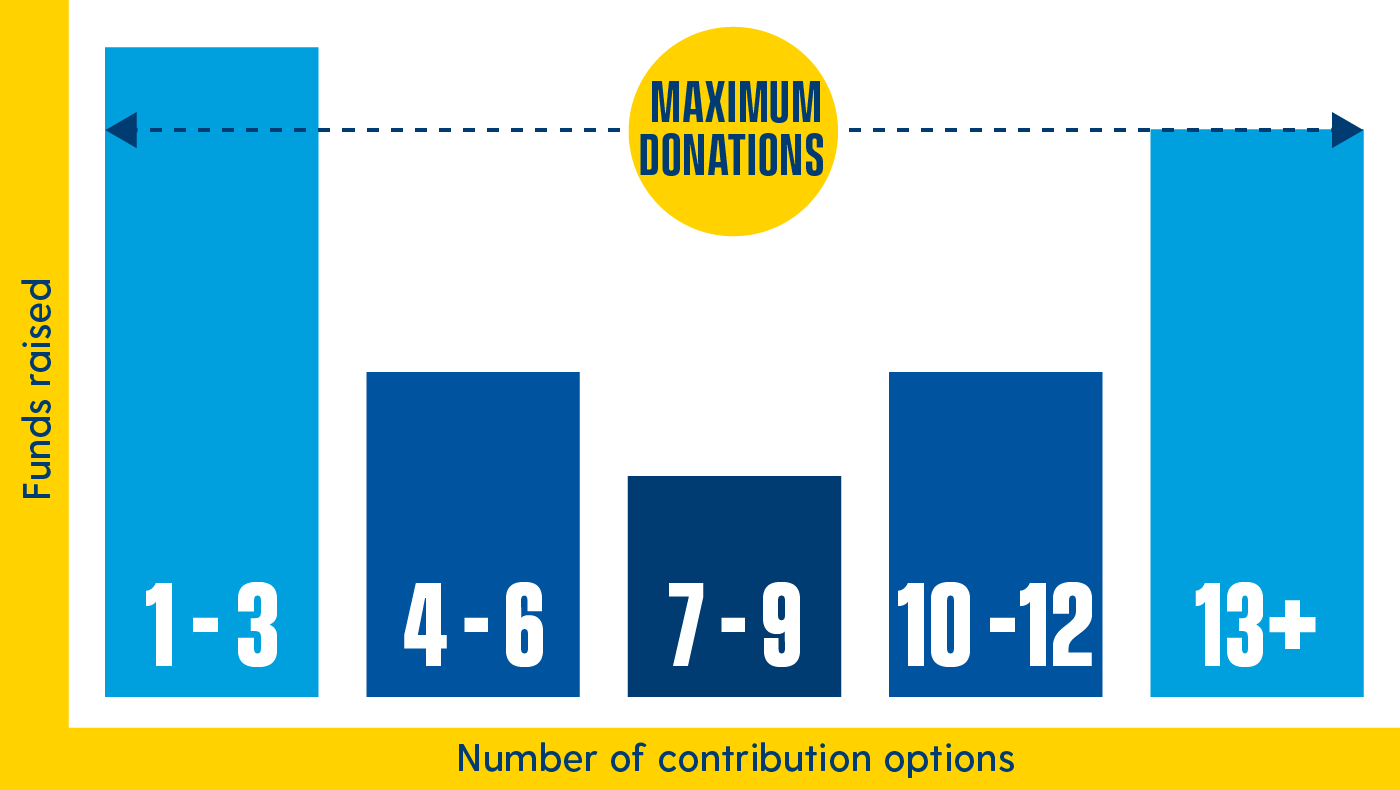As the holiday season inspires many people to open up their wallets and donate to charitable causes, fundraisers may be wondering how to optimize campaigns to attract the most donations. New research from the University of Delaware’s Michal Herzenstein finds one crucial detail that people organizing fundraisers may not be considering: how many contribution options they offer.
Fundraisers often put a lot of effort into creating contribution options for donors. These can include everything from reward levels on a crowdfunding platform like Kickstarter—for example, “Pledge $10 and receive a bumper sticker”—to different foods available for purchase at a bake sale. But they may not be thinking about how the number of options makes a big impact.
In a paper published recently in the International Journal of Research in Marketing, Herzenstein’s team found that offering a very low (roughly three) or very high (15 or more) number of options consistently leads to the highest number of donations.
When asked why this happens, Herzenstein, an associate professor of marketing at UD’s Alfred Lerner College of Business and Economics, explained that “it’s all about processing.” People don’t take notice of a medium number of contribution options, she said, but the uniqueness of a higher or lower number of options leads potential donors to make positive inferences about a fundraising initiative.
“A small number of options is considered curated and special,” Herzenstein said. “A large number of options shows the fundraiser has painstakingly considered and crafted many options. Both lead to higher evaluations of the fundraiser.”
For this reason, Herzenstein’s advice to fundraisers is simple: “Offer either few or many options. If you offer few, make sure you curate them carefully.”
To find these results, Herzenstein and her coauthors, Rice University’s Utpal M. Dholakia and Scott Sonenshein, conducted four studies. These studies included an analysis of Kickstarter data, a field study and two controlled lab experiments that explored other types of fundraisers. All four studies found consistent results: a consistent U-shape, meaning donations dipped significantly for fundraisers with a medium number of contribution options, across all four studies.
The field study gave Herzenstein particular satisfaction, she said, because it enabled the research team to give back to the community themselves. The Kind Snack company donated snack bars to the team, who then sold them at local co-op Newark Natural Foods to benefit the Wilmington-based charity Kind to Kids. Shoppers had either 3, 6, 9, 12 or 15 options to choose from, with all proceeds from the field experiment going to the nonprofit.
Herzenstein, her coauthors and Newark Natural Foods then rounded up the total donation to $1,000. She said that the team was proud to do this, and to conduct research on the subject of philanthropy, because “the three of us care deeply about prosocial behavior.”
More research remains to be done in this field, the team wrote in their article, because consumers make decisions related to helping others in a unique way. Their habits when making charitable donations are often very different from their habits when making other purchases or financial choices.
“Prosocial decisions appear to operate differently with respect to the role the number of options has in the decision,” the team wrote. Finally, they concluded: “Given the prevalence of prosocial choices, as well as their potential to help consumers and society, this research takes an initial step towards better understanding the intricacies of choices that can truly make a difference.”




